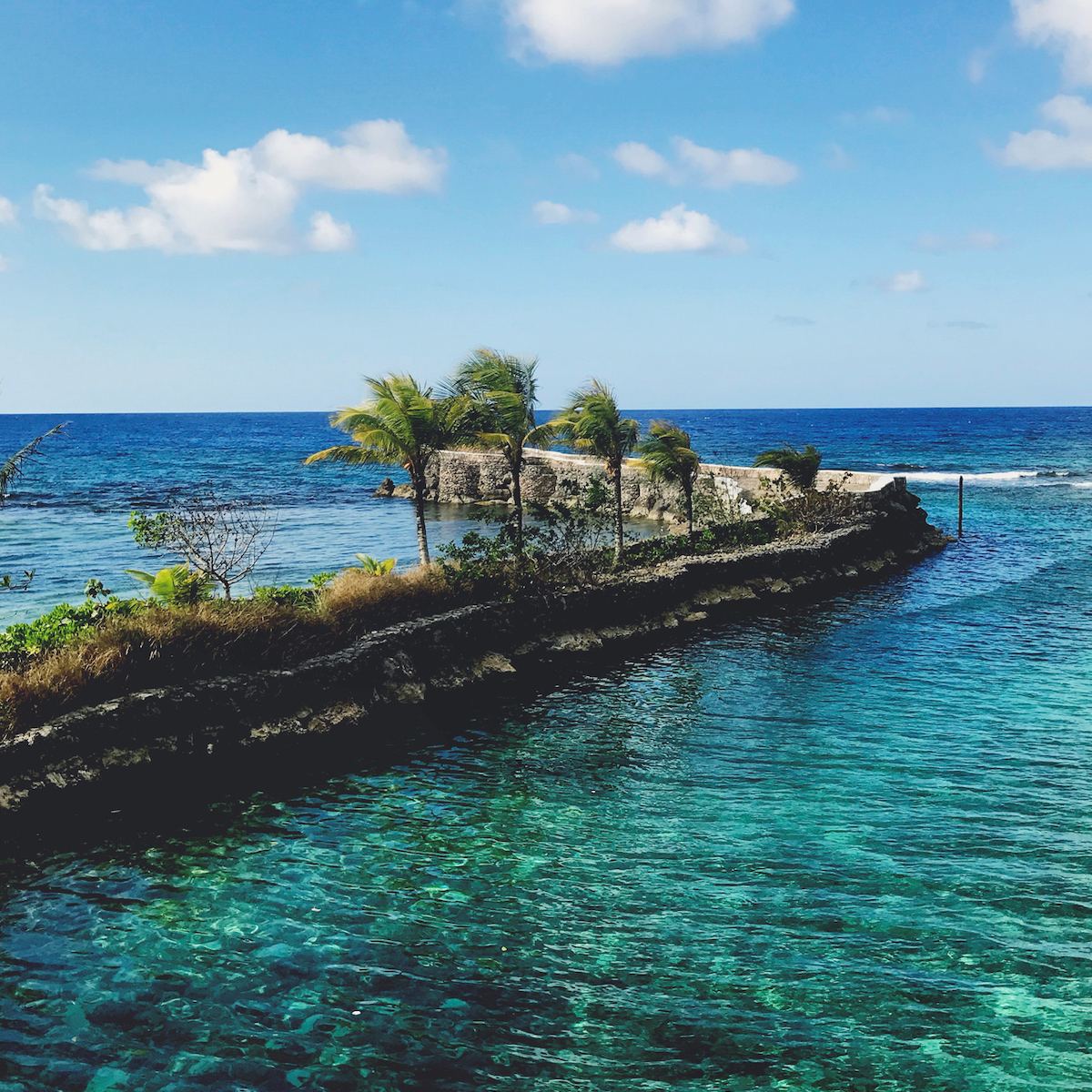Table of contents
- 1 TL;DR — Can You Have a Catholic or Religious Destination Wedding?
- 2 What Makes a Wedding “Catholic”?
- 3 Can You Have a Catholic Destination Wedding?
- 4 Catholic Church Wedding Requirements Abroad
- 5 Where Can You Have a Catholic Destination Wedding?
- 6 Catholic Beach Weddings: Myths vs. Reality
- 7 Christian Destination Weddings
- 8 Small & Intimate Catholic Weddings
- 9 Catholic vs. Symbolic Ceremonies Abroad
- 10 Further Details and Description on Religious Ceremonies
- 11 Tips for Planning a Religious Destination Wedding
- 12 FAQs — Catholic & Religious Destination Weddings
- 13 Final Thoughts — Faith, Tradition, and Travel
With destination weddings, there are two types of ceremonies: legal and symbolic. A legal ceremony is legally binding where it is performed, from Mexico to Jamaica, and they require extra paperwork, extra costs, and sometimes even blood tests. If you need/want a civil ceremony performed you can take this route. A symbolic ceremony will celebrate your union just like a legal ceremony and can include the same ceremony details from music to flowers. However, you must get married at home beforehand by your church or courthouse before traveling to your destination. It is much easier to save money and time by choosing a symbolic ceremony. Either way, the ceremony is the same minus the legality and guests won’t notice the difference.
The cover photo of this article features Dreams Tulum in Mexico.

Catholic destination weddings also fall into these two categories: legal and symbolic. Depending on your location you may have a church, chapel, or religious officiant available to you. Based on religious rulings, Catholic ceremonies typically fall into two proceedings. They are either performed in a church in order to be recognized officially, or a couple will have a ceremony held by a minister in order to receive a religious blessing for their union.
If you are wanting a Catholic wedding it’s important to first consult your local parish or priest for help and advice. To be recognized many Catholic weddings require scanned copies of your baptism, and possibly your communion and confirmation papers too. In the case that one person isn’t Catholic, your local parish can offer further assistance. Lastly, your parish will approve of your marriage and the approval paperwork will be forwarded to your chosen destination.
TL;DR — Can You Have a Catholic or Religious Destination Wedding?
Yes — but it depends on where and how you plan to marry. Catholic weddings abroad must follow Church law and diocesan approval, while Christian and non-denominational weddings are generally more flexible.
| Topic | Quick Answer (2026) |
|---|---|
| Can Catholics marry abroad? | Yes, with written approval from home and destination dioceses. |
| Legal vs. Sacramental | Legal = recognized by government; Sacramental = recognized by the Church. |
| Paperwork Needed | Baptismal & Confirmation certificates, Pre-Cana proof, Letter of Freedom. |
| Popular Destinations | Mexico, Dominican Republic, Italy, Spain. |
| Alternatives | Symbolic or chapel blessings for non-Church settings. |
What Makes a Wedding “Catholic”?
A Catholic wedding is a sacrament, not just a ceremony. It must:
- Be presided over by a priest or deacon.
- Take place in a consecrated Church or chapel.
- Follow canonical form, including scripture readings, vows, and blessing.
This is why most Catholic destination weddings cannot occur directly on the beach — the Church requires a sacred setting.
👉 Key takeaway:
A legal wedding makes your marriage recognized by the state, while a sacramental wedding makes it recognized by the Church.
Can You Have a Catholic Destination Wedding?
Yes — but it requires coordination between your home parish and the destination diocese. Both must give written approval.
Here’s what the process typically looks like:
| Step | Handled By | Timeline |
|---|---|---|
| Meet with your home parish priest | Couple | 6–12 months prior |
| Complete Pre-Cana / marriage prep | Diocese | 4–6 months |
| Collect documents (baptism, confirmation, ID) | Couple | 3–4 months |
| Send paperwork to destination parish | Priest / Diocese | 2 months before wedding |
| Receive confirmation and date approval | Destination parish | 1 month prior |
💡 Tip: Many resorts with on-site chapels work directly with local dioceses to simplify this process.
Catholic Church Wedding Requirements Abroad
If you’re planning a Catholic destination wedding, you’ll need:
- ✅ Pre-Cana certificate (proof of marriage preparation)
- ✅ Baptism, First Communion, and Confirmation records
- ✅ Letter of Freedom to Marry from your home parish
- ✅ Civil marriage certificate (for legal recognition in destination country)
- ✅ Delegation letter allowing your priest to officiate abroad
All documentation should be translated into the local language and sent well before your travel dates.
Where Can You Have a Catholic Destination Wedding?
| Country | Eligibility | Notes / Venues |
|---|---|---|
| Mexico | Easiest for U.S. couples | Catholic chapels at Dreams, Secrets, and El Dorado resorts |
| Dominican Republic | Moderate | Local diocese must approve; chapels available in Punta Cana |
| Italy | More paperwork | Requires “Nulla Osta” civil clearance; popular in Rome, Amalfi, Tuscany |
| Spain | Moderate | Popular for elopements; civil + Church paperwork required |
| Jamaica | Strict | Catholic weddings only in approved chapels, not beaches |
💡 Example: Dreams Tulum and Secrets Cap Cana both feature Catholic-blessed chapels just steps from the sea — ideal for combining tradition with paradise.
Catholic Beach Weddings: Myths vs. Reality
Myth: You can have a full Catholic wedding on the beach.
Reality: Canon law requires weddings in a sacred space, not open-air beaches.
However, some resorts have chapels with ocean views, creating the same ambiance legally and spiritually.
✅ Possible Options:
- Beachfront chapels (e.g., Cap Cana, Montego Bay)
- Symbolic “blessing” ceremonies outside the Church
- Hybrid celebrations — Church service + beach reception
Christian Destination Weddings
For Christian or Protestant couples, destination weddings are more flexible. Most denominations — including Baptist, Methodist, Anglican, and non-denominational — allow outdoor or resort-based ceremonies.
- Legal validity: Determined by civil law of the destination.
- Symbolic option: Couples can have a blessing even if legally married elsewhere.
- Common locations: Jamaica, the Bahamas, and Mexico resorts with non-denominational ministers.
💡 Example: Many Hyatt Ziva and Sandals resorts offer Christian or interfaith officiants who tailor the ceremony to your denomination.
Small & Intimate Catholic Weddings
Destination chapels make small Catholic weddings more accessible than ever.
| Size | Avg. Cost (USD) | Typical Venue |
|---|---|---|
| 2–10 guests | $2,000–$4,000 | Chapel elopement |
| 25–50 guests | $5,000–$9,000 | Resort chapel |
| 100+ guests | $10,000+ | Cathedral or parish church |
Popular spots:
- Cancún: Small colonial chapels for elopements.
- Rome: Private ceremonies in historic basilicas.
- Dominican Republic: Chapel weddings in Punta Cana resorts.
💡 Note: Vow renewals or symbolic blessings require less paperwork and can often be arranged within 2–3 months.
Catholic vs. Symbolic Ceremonies Abroad
| Type | Legal Status | Church Recognition | Ideal For |
|---|---|---|---|
| Catholic Sacramental | Legal (with civil paperwork) | Yes | Couples seeking religious marriage |
| Symbolic Ceremony | Not legally binding | No | Already-married couples renewing vows |
| Civil Ceremony | Legal | No | Couples prioritizing legality over faith requirements |
If your dream setting is outdoors or beachfront, a symbolic Catholic-style blessing may be your best option — keeping faith at the heart of your celebration without canonical limitations.
Further Details and Description on Religious Ceremonies
Now let’s break down the common religious rules in regards to some of our most popular destinations:
Mexico – A civil ceremony is legally recognized and performed by a Judge and a blood test is required. These are considered separate from Religious ceremonies, which are performed by a non-denominational minister. Symbolic religious blessings can be arranged.
Dominican Republic – Catholic ceremonies are performed by a Catholic priest. Both civil and Catholic ceremonies are legally recognized and require notarized paperwork and translation to Spanish. Vow renewals are considered symbolic and have no legal bearing.
Jamaica – Both civil and religious ceremonies are considered legally binding. Renewals of vows can be performed by ministers but are considered symbolic.
Aruba – A civil ceremony must be performed by a judge in City Hall and is legally recognized. Religious ceremonies are performed by non-denominational ministers and not legally recognized. Symbolic religious blessings can be arranged.
Costa Rica – A civil ceremony is performed by a judge and is legally recognized. Religious ceremonies and renewal of vows are considered symbolic and performed by non-denominational ministers. Symbolic religious blessings can be arranged.
Tips for Planning a Religious Destination Wedding
✅ Start early: Begin Church paperwork at least 9–12 months before your wedding.
✅ Pick a resort with a chapel: This ensures compliance with canon law.
✅ Coordinate between parishes: Keep communication open between your home and destination dioceses.
✅ Ask about priest coordination: Many resorts help bring or assign priests.
✅ Translate your documents: Especially for ceremonies in Latin America or Europe.
💡 Pro tip: Destify works with resorts that already have diocesan approval, saving you time and uncertainty.
FAQs — Catholic & Religious Destination Weddings
Can you have a Catholic destination wedding?
Yes, but it must occur in an approved church or chapel, with diocesan permission.
Can Catholics get married on the beach?
No. Only symbolic blessings may occur outdoors; canonical weddings must be inside a sacred space.
What paperwork do we need for a Catholic wedding abroad?
Baptism, Confirmation, Pre-Cana certificate, Letter of Freedom, and diocesan approvals.
Are destination Catholic weddings legally binding?
Yes, if combined with civil registration in the destination country.
Do we need Pre-Cana for destination weddings?
Yes, all Catholic couples must complete Pre-Cana through their home diocese.
Can non-Catholics participate in a Catholic ceremony?
Yes, but only one partner must be Catholic. Mixed-faith marriages require additional pastoral approval.
How long does Church approval take?
Typically 3–6 months, but start the process 9–12 months in advance.
What’s the difference between a Catholic and Christian wedding abroad?
Catholic weddings require Church authorization; Christian (Protestant) weddings are more flexible.
Do resorts have Catholic priests?
Some do — particularly in Mexico and the Dominican Republic — while others work with local parishes.
Can we combine a civil and Church ceremony abroad?
Yes, many couples complete the civil portion first, then the sacramental ceremony.
Final Thoughts — Faith, Tradition, and Travel
Your love story deserves to be celebrated in a way that honors both your faith and your dream destination. With the right planning, you can have a ceremony that is spiritually meaningful, legally valid, and breathtakingly beautiful.
Whether you’re walking down the aisle of a seaside chapel in Cancún, saying “I do” in Rome, or exchanging vows under stained-glass light in Punta Cana, your marriage can reflect both devotion and destination.
💒 Destify’s planners specialize in Catholic and Christian destination weddings — connecting couples with approved chapels, bilingual priests, and resorts across Mexico, Jamaica, and the Caribbean.
👉 Start planning your religious destination wedding with Destify today.






